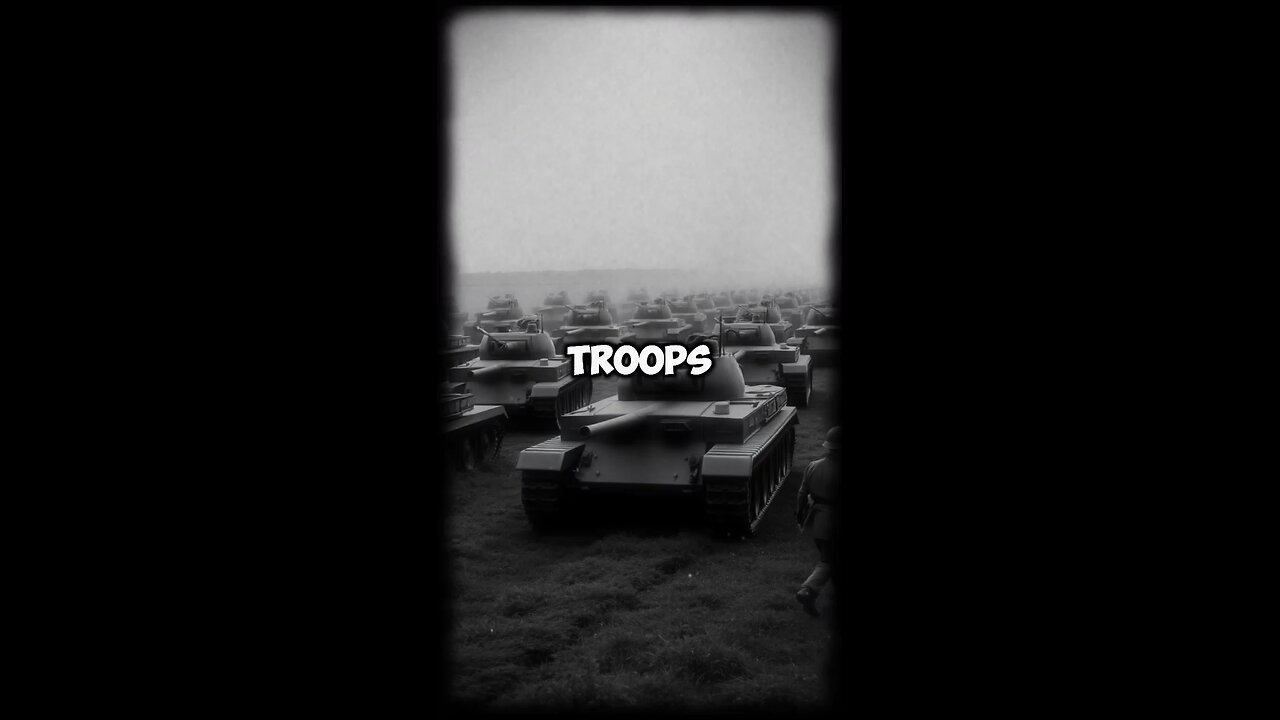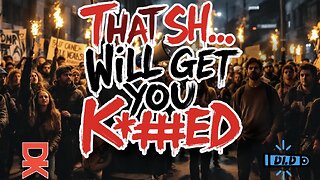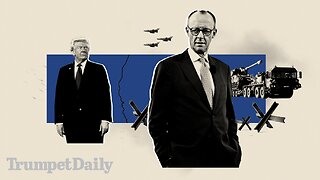Premium Only Content

Did you know the strange case of ghost army of WWII ?
During World War II, the U.S. Army created a unique and secretive unit known as the "Ghost Army." Officially designated as the 23rd Headquarters Special Troops, this unit was tasked with deceiving the German forces about the location and strength of Allied troops. Activated on January 20, 1944, it consisted of 1,100 soldiers, including artists, actors, and engineers, who specialized in various forms of deception.
The Ghost Army employed a range of ingenious tactics:
- Inflatable Equipment: They used inflatable tanks, artillery, and even aircraft, which were remarkably realistic from a distance. These decoys helped to give the illusion of a larger military presence.
- Sonic Deception: The unit deployed sound trucks equipped with massive speakers that could broadcast the noises of troop movements, tank engines, and construction sounds to simulate the presence of a significant military force.
- Fake Radio Traffic: Radio operators sent out misleading Morse code signals to confuse German intelligence about the positions and intentions of the Allied forces.
- Visual and Costume Illusions: Soldiers would impersonate other units, complete with appropriate uniforms, insignia, and even fake generals, to spread disinformation.
The Ghost Army conducted 22 major operations, from Normandy to the Rhine, contributing to the success of Allied advances by drawing enemy attention away from real troop movements. Their efforts are credited with saving between 15,000 to 30,000 lives by misleading the enemy, allowing actual combat units to move undetected.
The secrecy surrounding the Ghost Army was so tight that their contributions remained classified for over 40 years, long after the war ended, with many members sworn to silence. It wasn't until the mid-1990s that their story was declassified, leading to recognition for their innovative approach to warfare. In 2022, members of the Ghost Army were awarded the Congressional Gold Medal for their unique service, acknowledging their significant role in WWII's European theater.
This tale of the Ghost Army not only showcases the creative side of military strategy but also underscores the importance of art and illusion in the context of warfare.
-
 UPCOMING
UPCOMING
DLDAfterDark
13 minutes agoDLD Live! That Sh... Will Get You K***ed! What To Consider in SHTF
-
 LIVE
LIVE
megimu32
3 hours agoON THE SUBJECT: IRL Streamers Attacked & Nostalgic Animal Movies That Made Us Cry
564 watching -
 1:00:54
1:00:54
The Tom Renz Show
7 hours agoMore Epstein/FBI, a Scary Trade War, & the Dem Echo Chamber
7.49K1 -
 40:43
40:43
Kimberly Guilfoyle
8 hours agoDems Double Down on Delusion-Why? Live with Tony Kinnett & Bo French | Ep.202
77.8K34 -
 1:28:42
1:28:42
Redacted News
6 hours agoBREAKING! SOMETHING BIG IS HAPPENING IN EUROPE ALL OUT WAR IS COMING AGAINST RUSSIA, TRUMP FURIOUS
121K282 -
 47:50
47:50
Candace Show Podcast
6 hours agoBREAKING: Judge Makes Statement Regarding Taylor Swift's Text Messages. | Candace Ep 155
113K113 -
 1:14:23
1:14:23
Josh Pate's College Football Show
3 hours ago $0.29 earnedCFB’s Most Hated Teams | FSU & Clemson Future | Big Ten Win Totals | Star Rankings Overrated?
14.5K -
 1:33:47
1:33:47
CatfishedOnline
5 hours agoGoing Live With Robert - Weekly Recap
27.8K -
 55:18
55:18
LFA TV
1 day agoEurope’s Sudden Turn Against America | TRUMPET DAILY 3.6.25 7PM
32.2K3 -
 4:21
4:21
Tundra Tactical
4 hours ago $2.12 earnedPam Bondi MUST Enforce Due Process NOW!
23.7K1